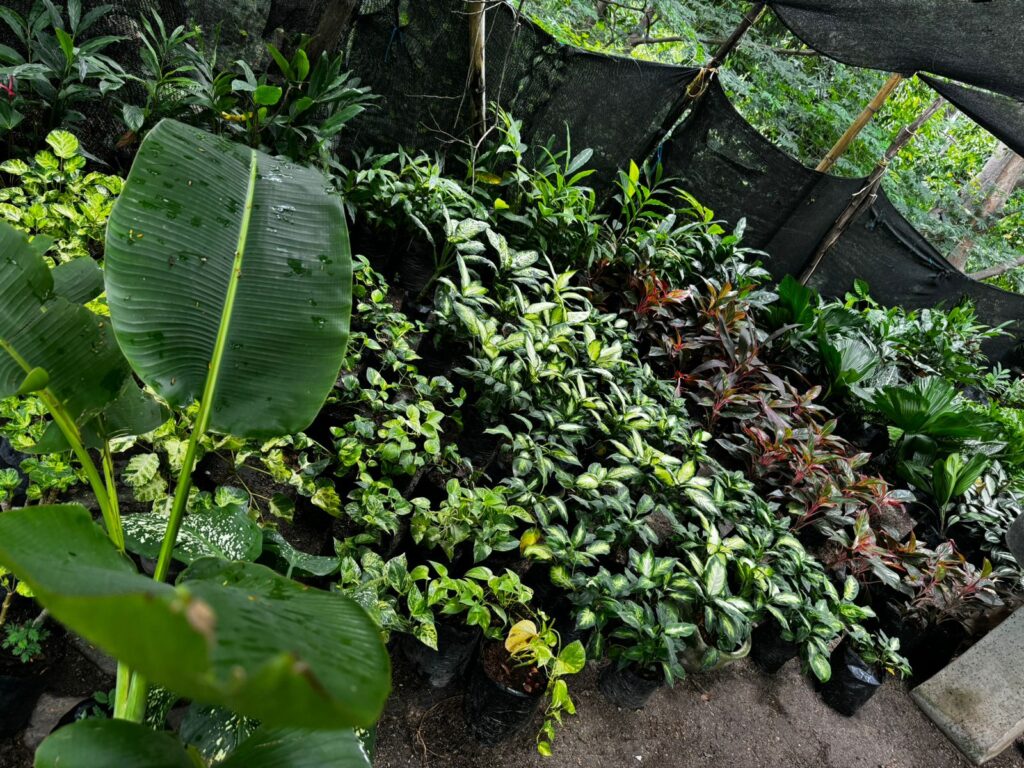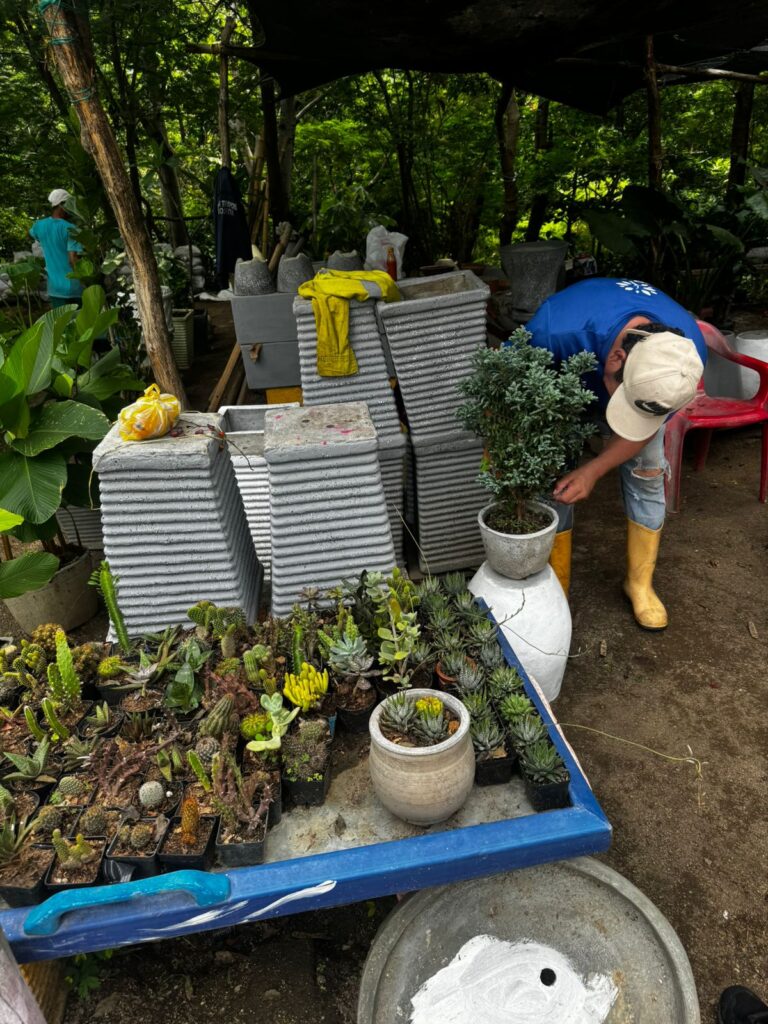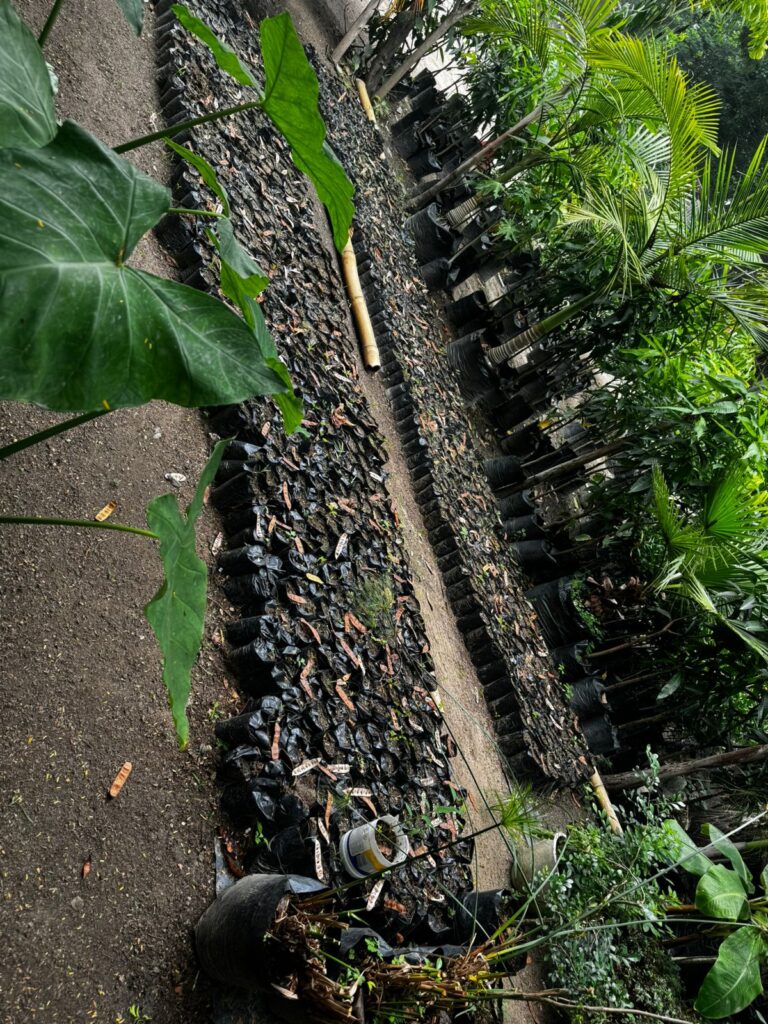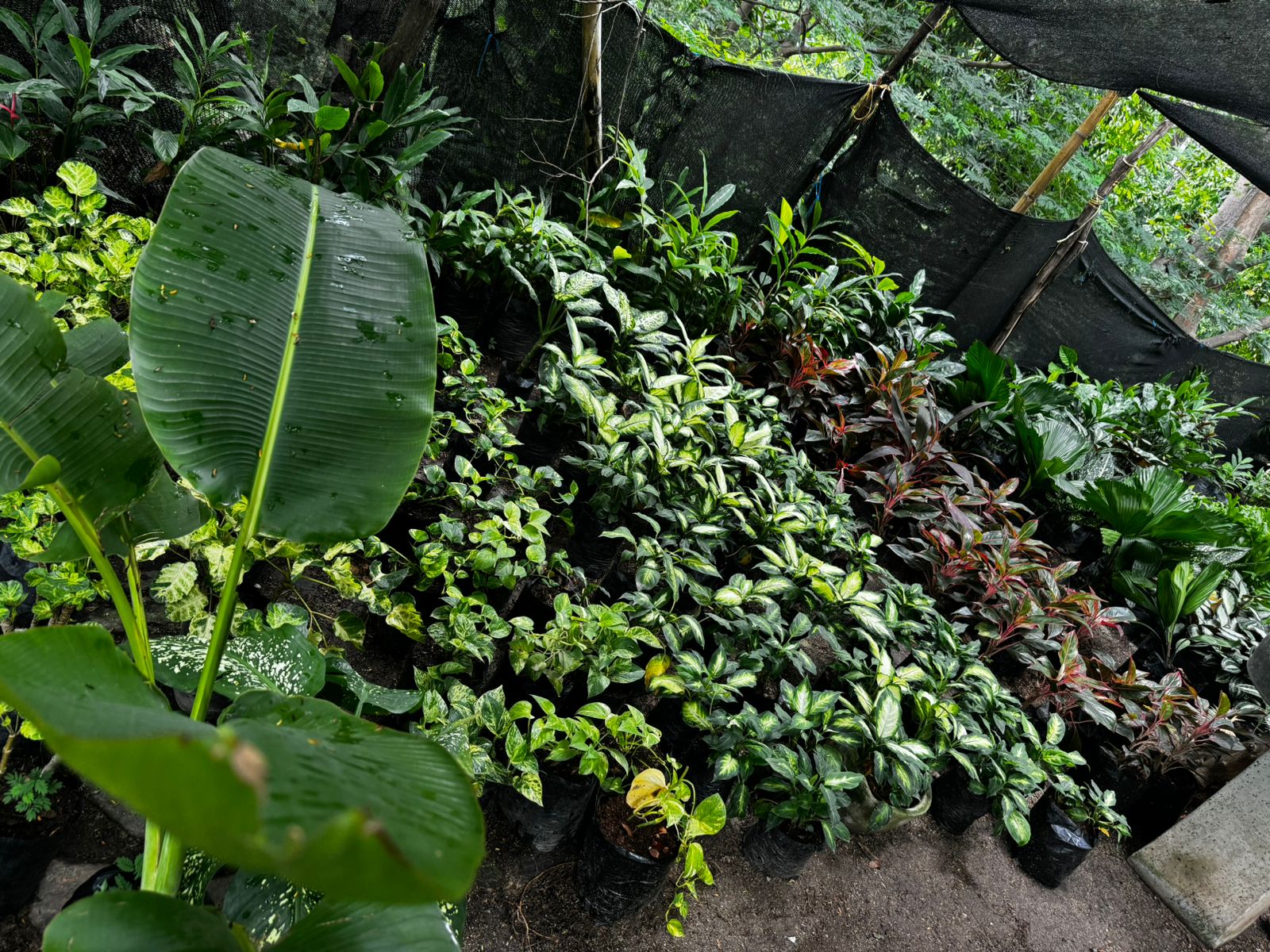RESUME
The Yucuna Botanical Garden, located in the Colombian Amazon basin, is a project aimed at preserving the unique biodiversity of the region and promoting the well-being of the Yucuna indigenous community through conservation strategies, environmental education and sustainable development. This 10,000 m² space houses a significant collection of more than 500 plant species, including endemic orchids and Amazonian trees, which are fundamental both for ecological conservation and for the cultural and economic sustenance of the local community.
The Yucuna Botanical Garden is a collaborative effort between researchers, conservationists and members of the Yucuna community, which seeks to address contemporary environmental challenges, particularly the impacts of climate change. The project is structured into various areas of action that include the conservation of endangered species, the restoration of ecosystems, educational programs and the development of community capacities.
One of the main objectives of the garden is the in situ and ex situ conservation of endangered species, such as Cattleya warneri and Alstroemeria psittacina, through the creation of specialized micro-habitats and nurseries that facilitate breeding programs. These activities are complemented by reforestation initiatives that seek to restore 50 hectares of degraded lands, using native species that improve the biodiversity and ecological resilience of the area.
The project places a strong emphasis on environmental education, implementing more than 200 annual workshops that educate the local community and visitors about the importance of biodiversity conservation and sustainable resource management practices. Additionally, community members are trained as environmental guides, which not only encourages local employment but also ensures the transmission of traditional and scientific knowledge to visitors.
In collaboration with academic institutions, the garden carries out research on the adaptation of species to climate change and the most effective methods for conserving biodiversity. This research component is vital for the creation of evidence-based strategies that can be replicated in other regions of the Amazon and beyond.
The project is also deeply rooted in community participation, allowing local residents to actively participate in the management and decisions of the garden. Microbusiness projects are promoted and programs that use garden resources sustainably, such as beekeeping and agroforestry, are implemented, which provide additional income to local families.
The Yucuna Botanical Garden is financed through a combination of international grants, government funds, carbon offset programs, and generating its own income through ecotourism and the sale of derived products. This diversified financing strategy ensures the long-term sustainability of the project and its ability to adapt to the changing needs of the community and environment.
The Yucuna Botanical Garden not only preserves the rich biodiversity of the Colombian Amazon, but also serves as a model for how environmental conservation can be integrated with community and educational development. This holistic and sustainable approach promotes a harmonious coexistence between humans and their natural environment, ensuring that both biodiversity and local culture thrive for future generations.




